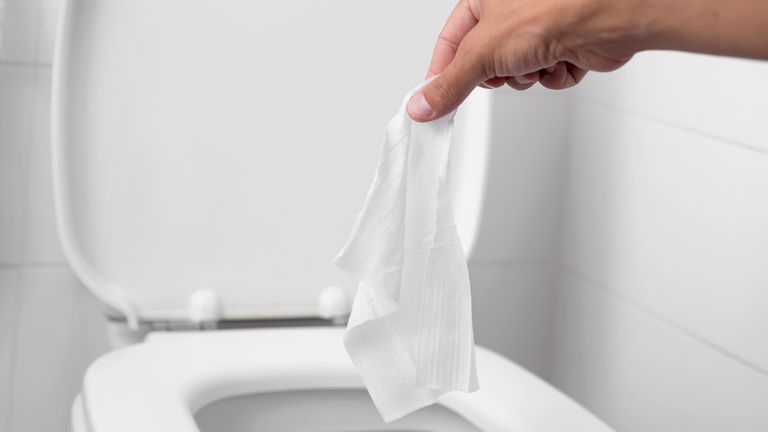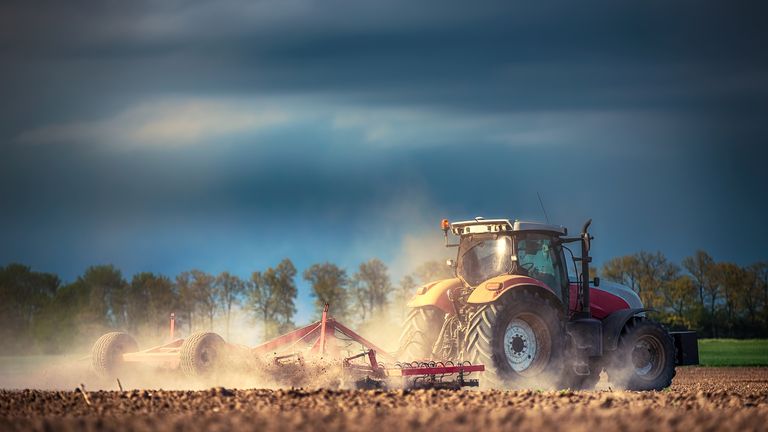Recycled policy on wet wipes shows the government is dodging bigger issues
Therese Coffey is launching a third consultation on banning the cosmetic products in just two years because our rivers are in such a terrible state.
Tuesday 4 April 2023 12:49, UK
There's a bit of a whiff about the government's plan to clean up our rivers. The Environment Secretary Therese Coffey says she wants to ban plastic wet wipes, which clog sewers and pollute waterways.
But it will only be after a consultation. That's the third consultation on a ban since 2021.
And the plan goes back even further, to 2018 when Sky Ocean Rescue was campaigning on single-use plastics.
So why recycle the policy? The consultation in 2021 showed there was overwhelming public support for a ban. So making it a headline issue once again is a good way of distracting from the much harder problems coursing through our rivers.
Figures released last week showed there were more than 300,000 sewage spills in 2022. If it hadn't been a drought year, the number would have been even higher.
And there is also the horror of agricultural run-off. That's slurry (AKA farmyard manure) that's spread on fields, but flows into waterways when it rains.
Agricultural pollution results in four times as many rivers failing ecological standards than sewage overflows, according to The Wildlife Trusts.
Read more:
Plastic wet wipes ban proposed under plan to tackle water pollution
Good news on fall in sewage spills only highlights the scale of the challenge facing water companies
Govt plans to tackle sewage spills on beaches criticised for 'repeating' past mistakes
So what's the government doing about it?
Water companies will be told to bring forward £1.6bn in infrastructure plans to stop 10,000 sewage spills.
That's 10,000 of the 300,000 last year.
And farmers will have access to a £34m pot to reduce pollution from their land. That seems hopelessly inadequate given the scale of the problem.
Just look at the River Wye, which is dying because of the vast chicken farms concentrated in its catchment that are leaking huge quantities of nitrogen and phosphates.
The government is making a big deal about tighter regulation of water companies and a promise that polluters will pay for environmental damage.
Click to subscribe to ClimateCast with Tom Heap wherever you get your podcasts
But it's far from clear what that will mean. Will it just be fines for additional damage to the already degraded state of our waterways?
Our rivers have been used as open sewers for decades, flushing everything from industrial effluent to human waste out to sea. Dilute and forget.
Only it's coming back to haunt us. The estuary of the River Tees is a toxic sludge that local fishermen blame for falling catches. Chalk streams that should be crystal clear are being clouded by algae - and fish can't spawn.
It's a problem that's been overlooked by successive governments. And this new water plan looks like it's too little, too late.



